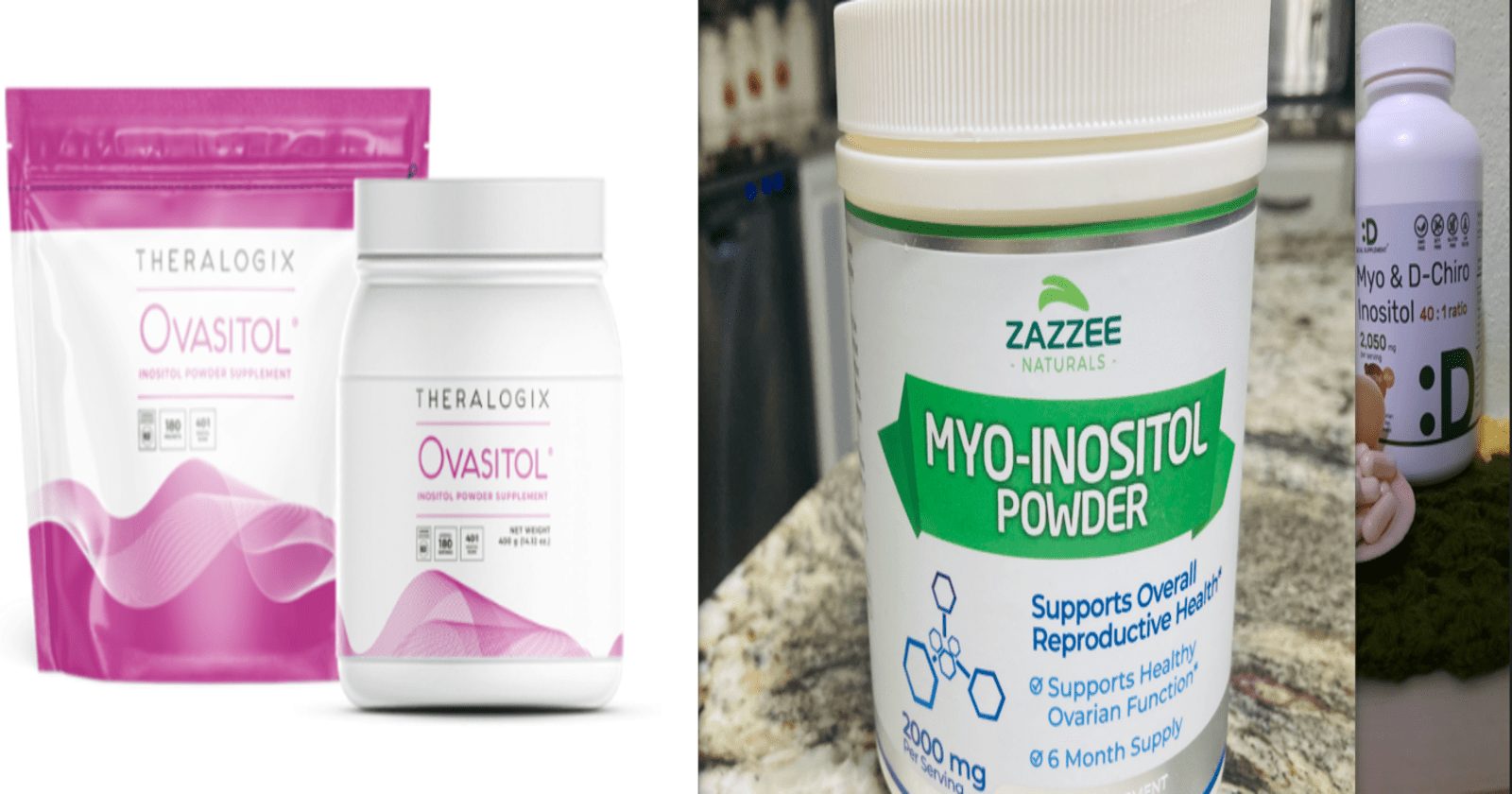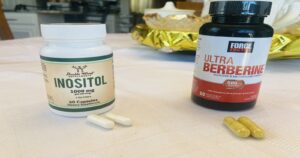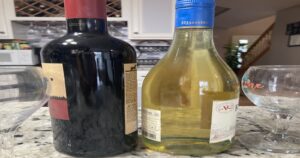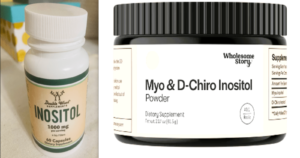Ovasitol and Inositol are both supplements that contain inositol, a type of sugar alcohol that is naturally found in many foods and is also produced by the human body. However, Ovasitol is a specific brand of inositol supplement that combines two forms of inositol: myo-inositol and D-chiro-inositol, in a specific ratio.
Ovasitol is a dietary supplement that is Two forms of Inositol, myo-inositol and D-chiro-inositol in a specific ratio, typically 40:1 or 3.6:1 while Inositol is a type of sugar alcohol that is naturally found in various foods and is also made by the human body. It plays a crucial role in various biological processes, including signal transduction, cell membrane integrity, and nerve function.

Is Ovasitol the same as Inositol?
Yes, Ovasitol contains two forms of inositol: myo-inositol and d-chiro-inositol. These are naturally occurring substances found in many foods and are also synthesized within the body.
Ovasitol provides a balanced combination of these two forms of inositol, making it a convenient and effective supplement for various health benefits, particularly in supporting metabolic and hormonal balance.
Differences between Inositol Supplements vs Ovasitol Supplements
- Composition:
- Inositol: Inositol supplements typically contain myo-inositol, which is the most common form of inositol found in nature. Myo-inositol has been studied for its potential benefits in various conditions, including polycystic ovary syndrome (PCOS), anxiety, and depression.
- Ovasitol: Ovasitol contains a combination of myo-inositol and D-chiro-inositol in a ratio of 40:1, which is similar to the ratio found naturally in the human body. Some research suggests that this specific ratio may be more effective for certain conditions, particularly in managing symptoms of PCOS.
- Clinical Evidence:
- Inositol: Myo-inositol has been the subject of numerous clinical studies, with research suggesting its potential benefits for PCOS, anxiety, depression, and other conditions. However, the evidence for the effectiveness of inositol in some of these areas is still emerging, and more research is needed.
- Ovasitol: Ovasitol has been studied specifically in the context of PCOS, with some research indicating that the combination of myo-inositol and D-chiro-inositol may offer benefits such as improving menstrual regularity, ovulation, and insulin sensitivity in women with PCOS.
- Dosage and Form:
- Inositol: Inositol supplements are available in various forms, including powder, capsules, and tablets. Dosage recommendations may vary depending on the specific condition being treated and individual factors.
- Ovasitol: Ovasitol is available in a powdered form and is typically taken in a specific dosage recommended by healthcare providers, often divided into two doses per day. The recommended dosage may vary based on individual needs and the severity of symptoms.
- Cost and Availability:
- Inositol: Inositol supplements are widely available from various manufacturers and are generally more affordable compared to branded formulations like Ovasitol.
- Ovasitol: Ovasitol is a branded supplement that may be available through healthcare providers or specialty retailers. It tends to be more expensive than generic inositol supplements due to its specific formulation and combination of ingredients.
Overall, both inositol and Ovasitol may offer potential benefits for certain health conditions, but Ovasitol, with its combination of myo-inositol and D-chiro-inositol in a specific ratio, is particularly targeted toward managing symptoms of PCOS.
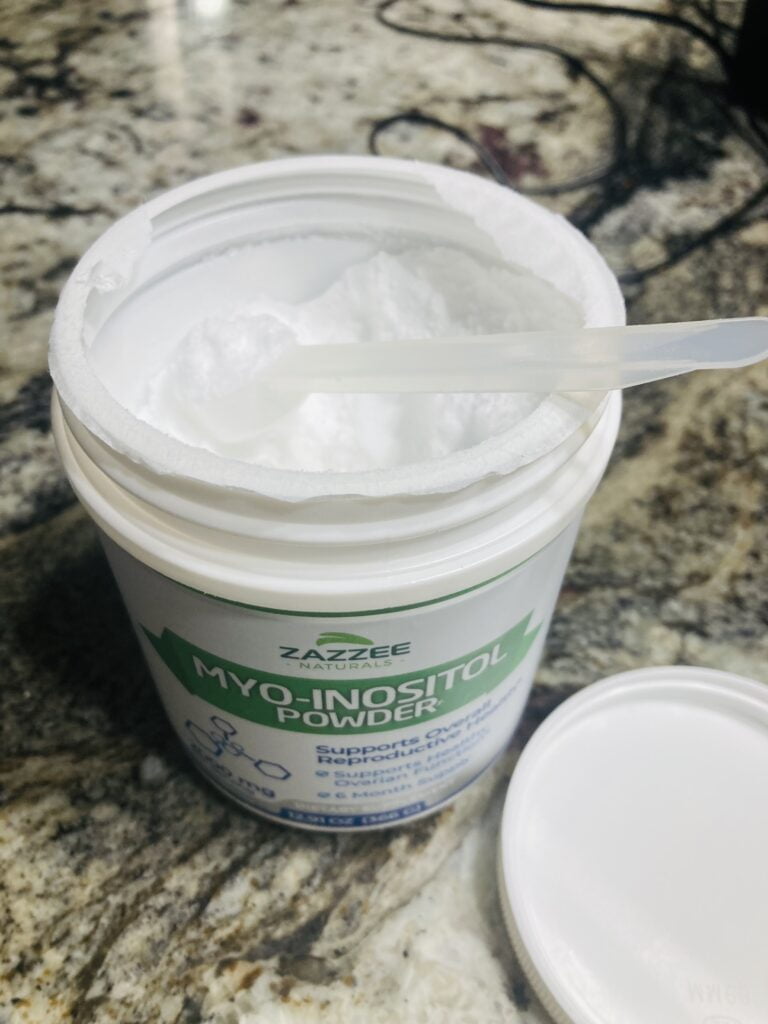
14 Amazing benefits of Ovasitol
Ovasitol is a combination of myo-inositol and D-chiro-inositol, which are two naturally occurring forms of inositol, a type of sugar alcohol that plays a crucial role in various bodily functions. Here are some potential benefits of Ovasitol:
- Improves Insulin Sensitivity: Ovasitol has been shown to improve insulin sensitivity, making it beneficial for individuals with conditions like polycystic ovary syndrome (PCOS) and diabetes.

2. Regulates Menstrual Cycles: For women with PCOS, Ovasitol may help regulate menstrual cycles, promote ovulation, and improve fertility.
3. Reduces Symptoms of PCOS: Ovasitol may alleviate common symptoms of PCOS such as irregular periods, acne, and excessive hair growth (hirsutism).
4. Supports Weight Management: Some studies suggest that Ovasitol may aid in weight management by helping to regulate appetite and reduce cravings, particularly in individuals with PCOS who often struggle with weight gain.

5. Improves Egg Quality: Ovasitol supplementation may improve egg quality and ovarian function in women undergoing fertility treatments.
6. Lowers Testosterone Levels: In women with PCOS, Ovasitol may help lower elevated testosterone levels, which can contribute to symptoms like acne and hirsutism.
7. Enhances Mood: Some individuals report improved mood and reduced anxiety with Ovasitol supplementation, possibly due to its effects on neurotransmitter function.
8. Supports Cognitive Function: Inositol has been studied for its potential cognitive benefits, including improved focus, memory, and mental clarity.
9. Reduces Risk of Gestational Diabetes: Ovasitol supplementation during pregnancy may help reduce the risk of gestational diabetes and improve maternal and fetal health outcomes.
10. Safe and Well-Tolerated: Ovasitol is generally safe and well-tolerated, with few reported side effects. It’s also available over-the-counter and doesn’t require a prescription in many places.
11. Lowers Androgens: Ovasitol can reduce the levels of androgens, which are hormones that can cause symptoms like acne and excessive hair growth in women, especially those with PCOS.
12. Lowers Cholesterol: Ovasitol may help lower high cholesterol levels, which are common in women with PCOS and can increase the risk of heart disease. It can reduce LDL (“bad”) cholesterol and triglycerides while increasing HDL (“good”) cholesterol.
13. Improves Mood: Ovasitol supplementation has been linked to better mental health, with studies showing improvements in depression, anxiety, and stress levels in women with PCOS.

14. Improves Thyroid Function: Inositol, one of the components of Ovasitol, plays a role in thyroid function. Since women with PCOS are more likely to have thyroid issues like Hashimoto’s disease, Ovasitol supplementation may help lower thyroid antibodies and improve thyroid function.
As with any supplement, it’s essential to consult with a healthcare professional before starting Ovasitol, especially if you have any underlying health conditions or are taking medications.
Ovasitol: Easy Dosage for Lasting Results!
For optimal results, the recommended dosage of Ovasitol is one scoop to be taken twice daily, preferably with breakfast and dinner. Each scoop provides a balanced combination of 2,000 milligrams of myo-inositol and 50 milligrams of d-chiro-inositol, conveniently formulated as a tasteless and odorless powder that easily dissolves in water.
A single container of Ovasitol is specifically designed to provide a 90-day supply, ensuring consistent and uninterrupted supplementation. This duration aligns with clinical findings suggesting that significant benefits typically emerge after at least three months of regular intake.
Numerous studies have demonstrated the safety profile of inositol supplementation, further affirming its suitability for long-term use. Notably, unlike the prescription medication metformin, Ovasitol is associated with minimal to no reported side effects, making it a well-tolerated option for individuals seeking metabolic support and hormonal balance.
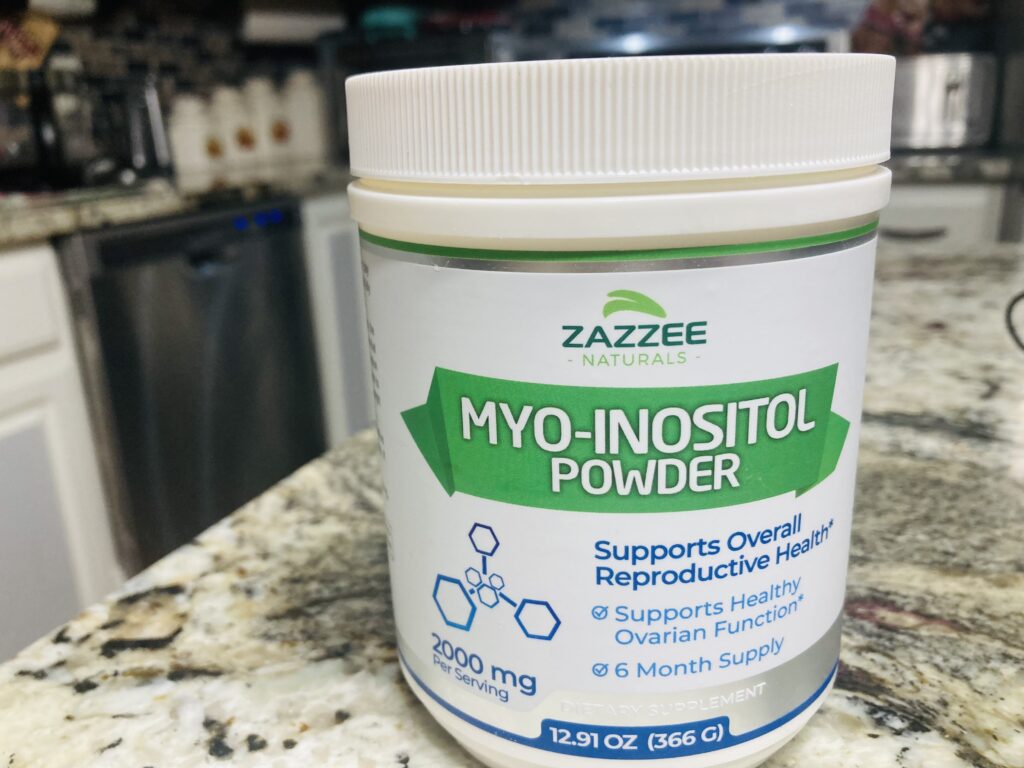
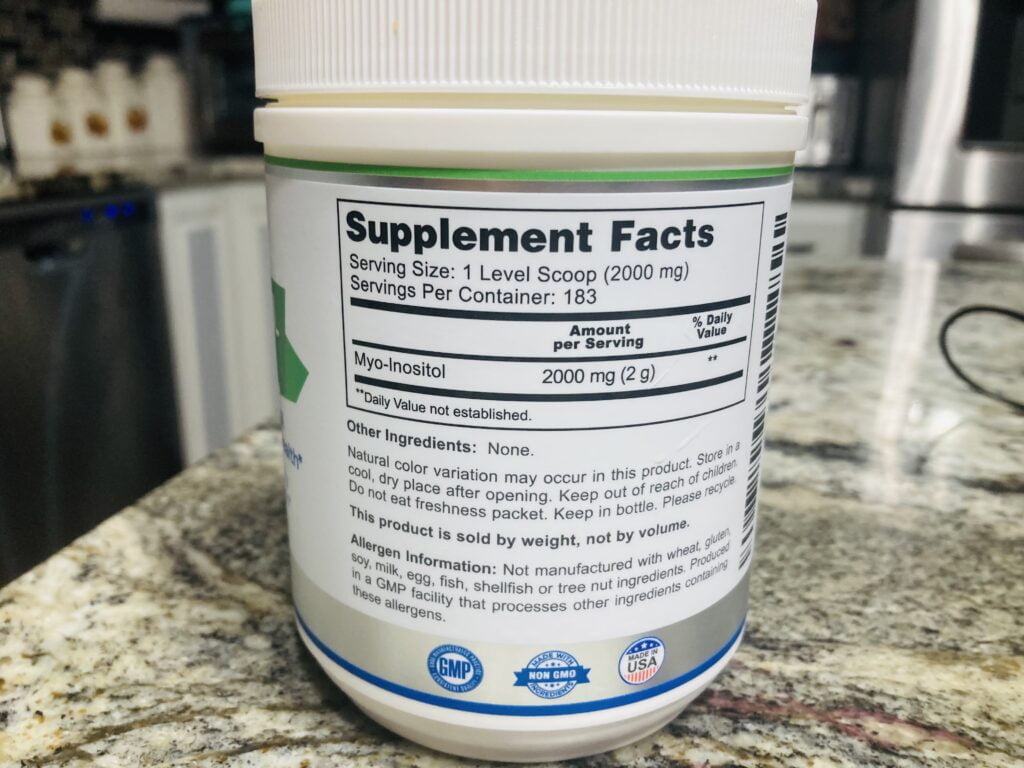
Ovasitol: What Sets it Apart from Inositol?
Ovasitol is a unique supplement formulated specifically for conditions like Polycystic Ovary Syndrome (PCOS), and it stands out due to its combination of two forms of inositol: myo-inositol and D-chiro-inositol. Let’s delve into what makes Ovasitol distinct:
- Myo-Inositol and D-Chiro-Inositol: These are two naturally occurring forms of inositol, which is a type of sugar alcohol. Inositol plays a crucial role in various cellular functions, including insulin signaling, which is particularly relevant for PCOS management. Both myo-inositol and D-chiro-inositol have been studied extensively for their potential benefits in PCOS.
2. The Ratio: Ovasitol provides a specific ratio of myo-inositol to D-chiro-inositol, which is 40:1. This ratio mirrors the physiological ratio found in the body’s tissues, particularly in the ovaries.
This balance is believed to be crucial for optimal functioning of insulin signaling pathways and other metabolic processes implicated in PCOS.
3. Insulin Sensitivity: PCOS is often associated with insulin resistance, a condition where the body’s cells become less responsive to the effects of insulin, leading to elevated insulin levels in the blood.
Both myo-inositol and D-chiro-inositol have been shown to improve insulin sensitivity, potentially helping to address this aspect of PCOS.
4. Ovulation and Menstrual Regularity: By improving insulin sensitivity and hormonal balance, Ovasitol may also help regulate menstrual cycles and promote ovulation in women with PCOS.
Many studies have demonstrated the effectiveness of inositol supplementation in improving menstrual regularity and fertility outcomes in women with PCOS.
6. Other Benefits: In addition to its effects on insulin sensitivity and reproductive health, inositol supplementation has been associated with improvements in other PCOS symptoms such as hirsutism (excessive hair growth), acne, and weight management.
7. Safety Profile: Ovasitol is generally well-tolerated with few reported side effects. It is considered safe for long-term use, although as with any supplement, individuals should consult with their healthcare provider before starting it, especially if they have any underlying medical conditions or are taking medications.
Ovasitol unique combination of myo-inositol and D-chiro-inositol in a physiologically relevant ratio makes it a popular choice for women with PCOS seeking natural approaches to manage their symptoms. Its ability to improve insulin sensitivity, regulate menstrual cycles, and address other PCOS-related issues highlights its potential benefits in supporting overall reproductive and metabolic health.
Understanding PCOS (Polycystic Ovary Syndrome): why Ovasitol is often marketed as a supplement for PCOS
Polycystic Ovary Syndrome (PCOS) is a hormonal disorder common among women of reproductive age. It is characterized by various symptoms, including irregular menstrual cycles, excess androgen levels (male hormones), and polycystic ovaries (multiple small cysts on the ovaries). The exact cause of PCOS is not fully understood, but it is believed to involve a combination of genetic and environmental factors.
Symptoms of PCOS can vary widely among individuals but may include:
- Irregular periods: Women with PCOS may have fewer than eight menstrual cycles a year, or they may have periods that are heavy, prolonged, or unpredictable.
2. Excess androgen levels: Elevated levels of male hormones in women with PCOS can lead to symptoms such as acne, excessive facial or body hair (hirsutism), and male-pattern baldness.
3. Polycystic ovaries: On ultrasound examination, the ovaries of women with PCOS may appear enlarged and contain multiple small follicles, giving them a characteristic appearance described as “polycystic.”
In addition to these primary symptoms, PCOS is often associated with other health issues, including insulin resistance, obesity, infertility, and an increased risk of type 2 diabetes, cardiovascular disease, and endometrial cancer.
The prevalence of PCOS varies depending on the diagnostic criteria used and the population studied, but it is estimated to affect around 5-10% of women of reproductive age worldwide.
Treatment for PCOS aims to manage symptoms and reduce the risk of complications. This may involve lifestyle modifications, such as adopting a healthy diet, regular exercise, and weight management. In some cases, medications may be prescribed to regulate menstrual cycles, reduce androgen levels, improve insulin sensitivity, or promote ovulation.
Inositol, particularly a combination of myo-inositol and D-chiro-inositol (often in a 40:1 or 3:1 ratio), has gained attention as a potential supplement for managing PCOS symptoms.
Inositol is a type of sugar alcohol that plays a role in various cellular processes, including insulin signaling and ovarian function. Some research suggests that women with PCOS may have altered inositol metabolism, leading to insulin resistance and other hormonal imbalances.
Supplementation with inositol, particularly myo-inositol, has been studied for its potential benefits in PCOS management. Research suggests that inositol supplementation may help improve insulin sensitivity, regulate menstrual cycles, and reduce symptoms such as hirsutism and acne. It may also help support ovarian function and improve fertility in women with PCOS.
While more research is needed to fully understand the effectiveness of inositol supplementation for PCOS and to determine the optimal dosage and treatment duration, many women with PCOS report positive outcomes from using inositol supplements as part of their management plan.
As always, it’s important for individuals with PCOS to consult with a healthcare provider before starting any new supplement regimen to ensure it is safe and appropriate for their specific needs.
Ingredients in Ovasitol vs Generic Inositol Supplements – Which is better for you?
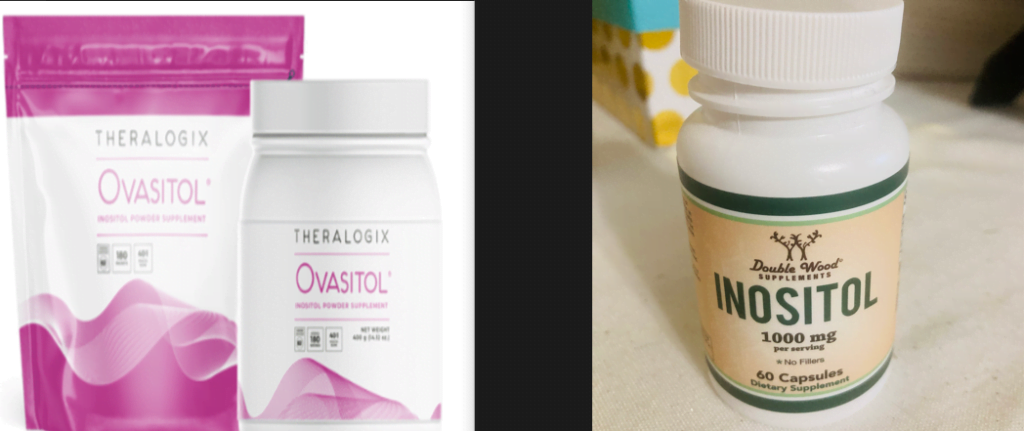
Ovasitol and generic inositol supplements both contain the active ingredient inositol, which is a type of sugar alcohol that plays a crucial role in various cellular functions in the body.
Inositol has been studied for its potential benefits in supporting hormonal balance, insulin sensitivity, and reproductive health, particularly in conditions like polycystic ovary syndrome (PCOS).
Ovasitol: Ovasitol is a branded supplement specifically formulated for women with PCOS. It contains a combination of two forms of inositol: myo-inositol and D-chiro-inositol, in a 40:1 ratio, which is believed to mimic the physiological ratio found in the body. This ratio is thought to be optimal for addressing the hormonal imbalances associated with PCOS.
Additionally, Ovasitol may contain other inactive ingredients such as natural flavors or sweeteners to enhance palatability and improve the overall consumer experience. These additional ingredients are typically included in very small amounts and do not significantly impact the nutritional profile of the supplement.
Generic Inositol Supplements: Generic inositol supplements usually contain either myo-inositol or D-chiro-inositol as the primary active ingredient. These supplements may come in various dosages and forms, such as capsules, powders, or tablets.
Compared to Ovasitol, generic inositol supplements may lack the specific 40:1 ratio of myo-inositol to D-chiro-inositol. While both forms of inositol have shown promise in addressing PCOS symptoms, the combined ratio found in Ovasitol may offer unique benefits due to its closer resemblance to the physiological ratio found in the body.
Additional Considerations: When comparing Ovasitol with generic inositol supplements, it’s essential to consider factors such as purity, potency, and quality control measures implemented by the manufacturer. Branded supplements like Ovasitol often undergo rigorous testing and quality assurance procedures to ensure consistency and potency in each dose.
Furthermore, Ovasitol is backed by clinical research demonstrating its effectiveness in improving menstrual regularity, ovulatory function, and insulin sensitivity in women with PCOS.
While generic inositol supplements may offer similar benefits, the specific formulation and dosage used in Ovasitol have been tailored to target the unique needs of women with PCOS.
In conclusion, both Ovasitol and generic inositol supplements contain inositol as the active ingredient, but Ovasitol offers a unique combination of myo-inositol and D-chiro-inositol in a specific ratio designed to support hormonal balance in women with PCOS.
Additionally, Ovasitol may contain other ingredients to enhance palatability and overall consumer experience. Ultimately, the choice between Ovasitol and generic inositol supplements depends on individual preferences, budget, and specific health needs.
8 Side Effects of Ovasitol that may be serious
Warning: While rare, Ovasitol may cause serious and potentially life-threatening side effects. Seek immediate medical attention if you experience any of the following symptoms, which could indicate a severe reaction:
- Allergic reaction symptoms, including rash, hives, itching, swelling of the face, lips, tongue, or throat, difficulty breathing or swallowing, or tightness in the chest.
- Symptoms of high blood sugar, such as confusion, increased thirst or hunger, frequent urination, fruity breath odor, rapid breathing, or flushing.
- Signs of liver problems, such as dark urine, fatigue, loss of appetite, stomach pain, vomiting, light-colored stools, or yellowing of the skin or eyes.
- Muscle pain or weakness.
- Chest pain or pressure.
- Dizziness or fainting.
- Shortness of breath.
- Excessive sweating.
Advantages of Ovasitol vs Inositol
Advantages of Ovasitol:
- Precision Dosage: Ovasitol is a precise combination of myo-inositol and D-chiro-inositol in a specific ratio (40:1), which is believed to be optimal for addressing conditions like PCOS (Polycystic Ovary Syndrome).
2. Convenience: Ovasitol typically comes in pre-measured packets, making it convenient to take and ensuring accurate dosing.
3. Scientifically Formulated: Ovasitol formulation is based on scientific research and clinical studies, supporting its efficacy in managing PCOS symptoms such as irregular menstrual cycles, insulin resistance, and hormonal imbalances.
Advantages of Inositol:
- Versatility: Pure inositol supplements offer versatility in dosing and can be tailored to individual needs or health conditions beyond PCOS, such as anxiety, depression, or metabolic syndrome.
2. Cost-Effectiveness: Inositol supplements may be more cost-effective compared to Ovasitol, especially if purchased in bulk or in larger quantities.
3. Availability: Inositol supplements are widely available over-the-counter in various forms, including powder, capsules, and tablets, providing accessibility to a broader range of consumers.
Disadvantages of Ovasitol compared to using pure Inositol
Ovasitol is a branded supplement that contains a combination of myo-inositol and D-chiro-inositol in a specific ratio, often used to support reproductive health in conditions like polycystic ovary syndrome (PCOS). While it has benefits, there are also some potential disadvantages compared to using pure inositol:
- Cost: Ovasitol tends to be more expensive than purchasing inositol supplements separately. If cost is a concern, opting for pure inositol may be more economical.
3. Specific Formulation: Ovasitol contains a fixed ratio of myo-inositol to D-chiro-inositol (40:1), which may not be optimal for everyone. Some individuals may benefit from different ratios or from using one form of inositol alone.
4. Limited Availability: Ovasitol may not be as readily available as pure inositol supplements. Depending on your location, it might be more convenient to find inositol in its individual forms rather than Ovasitol.
5. Potential for Unwanted Side Effects: While inositol is generally well-tolerated, combining myo-inositol with D-chiro-inositol might lead to different side effects compared to using each form separately. Some individuals may experience gastrointestinal discomfort, headaches, or other adverse reactions.
6. Less Flexibility in Dosage: With Ovasitol, you’re limited to the fixed ratio provided by the supplement. If you find that you need to adjust your dosage or ratio of myo-inositol to D-chiro-inositol, you may not have that flexibility with Ovasitol.
7. Unknown Long-Term Effects: The long-term effects of taking Ovasitol, especially in the specific ratio it provides, may not be fully understood. This is particularly important for individuals who plan to use it over an extended period.
Effectiveness Of Ovasitol vs Inositol
Ovasitol and inositol are both supplements commonly used to manage conditions like polycystic ovary syndrome (PCOS) and to support overall reproductive health. Ovasitol is actually a combination of myo-inositol and D-chiro-inositol, whereas inositol typically refers to myo-inositol alone.
- Ovasitol: Ovasitol is a branded supplement specifically formulated to provide a combination of myo-inositol and D-chiro-inositol in the ratio of 40:1, which is similar to the ratio found in the body. This combination is thought to mimic the physiological effects of inositol’s in the body more effectively than myo-inositol alone.
2. Inositol: Inositol, particularly myo-inositol is widely studied and has been shown to have beneficial effects on insulin sensitivity, ovarian function, and hormone balance, all of which are relevant to conditions like PCOS. It’s generally considered safe and well-tolerated.
Comparing the effectiveness of Ovasitol versus inositol depends on individual factors such as the specific health condition being targeted, dosage, and individual response to the supplements.
Some studies suggest that the combination of myo-inositol and D-chiro-inositol in Ovasitol may offer additional benefits over myo-inositol alone, particularly in improving insulin sensitivity and menstrual regularity in women with PCOS.
However, more research is needed to fully understand the comparative effectiveness of these supplements.
Ultimately, the choice between Ovasitol and inositol may depend on individual preferences, cost considerations, and discussions with healthcare providers.
Resources
https://www.webmd.com/vitamins/ai/ingredientmono-299/inositol
https://www.ncbi.nlm.nih.gov/pmc/articles/PMC7140126/
